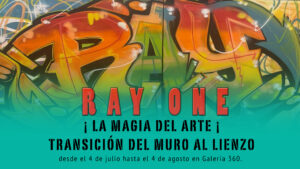By Juan Butten
I clearly remember the first time I watched What Have I Done to Deserve This?, directed and written by Pedro Almodóvar. It was in 2008, at the Cinemateca de Santo Domingo, during a special cycle dedicated to this Spanish director. From the very first moment, I was immersed in the film, which premiered in 1984 and made me laugh in ways I didn’t expect, thanks to the antics of its characters and the striking dialogues that resonated in every scene. For me, it is one of the most iconic works of Spanish cinema and a clear example of Almodóvar’s unique style, with that sharp humor that characterizes his early work.
The story revolves around Gloria, masterfully portrayed by Carmen Maura. She is a housewife trying to find her place in a world that seems to be crumbling around her. Living in a suburban neighborhood of Madrid, she faces the harsh reality of coexisting with a macho husband, a son who is involved in prostitution, and another involved in drug trafficking. Additionally, her neurotic mother-in-law and her addiction to stimulant medications add more chaos to her life, turning her into an “everyday heroine.”
What struck me the most was how Almodóvar weaves together laughter and despair in a tone of black comedy. Gloria’s only friend is a neighbor who is a prostitute, which underscores the loneliness and isolation she feels. Through this narrative, the director portrays the struggle of women in a patriarchal society, exploring themes of oppression, desire, and the search for freedom.
The cast includes several prominent actors of the time, such as Ángel de Andrés López and Verónica Forqué. Each character adds a layer of complexity to the narrative. Carmen Maura’s performance is particularly acclaimed, as she manages to convey the mix of desperation and resilience that defines her character. Almodóvar, who also appears in the film, adds a meta touch by being part of the cast, reinforcing his role as the narrator of this deeply personal story.
Visually, the film is vibrant and colorful, contrasting with the dark themes it addresses. The music, composed by Bernardo Bonezzi, complements the narrative and creates both a nostalgic and provocative atmosphere. I am fascinated by how Almodóvar uses humor to tackle serious issues, from domestic violence to sexuality, challenging social norms and questioning what it means to be a woman in 1980s Spanish society.
What Have I Done to Deserve This? was awarded the Sant Jordi Prize for Best Spanish Film, solidifying Almodóvar’s position in international cinema. This film not only marked a milestone in his career but also contributed to the evolution of Spanish cinema, opening doors for a new generation of filmmakers eager to tell authentic and provocative stories.
For me, What Have I Done to Deserve This? is a masterpiece that combines comedy, drama, and social critique in a powerful and emotional narrative. Through Gloria’s story, Almodóvar invites us to reflect on the complexities of modern life and the struggle for autonomy. This film has aged beautifully and reminds us of the importance of authenticity and voice in art. Undoubtedly, it continues to resonate in the current context, and I am grateful to have discovered it during that cycle at the Dominican Cinematheque.









